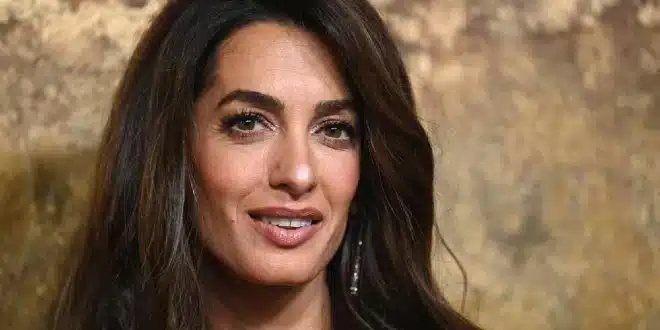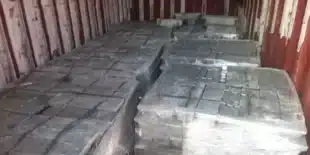Amal Clooney played a pivotal role in aiding the International Criminal Court (ICC) in assessing evidence that ultimately led to the decision to seek arrest warrants for high-ranking Israeli and Hamas officials, the human rights lawyer revealed.
In a statement posted on the Clooney Foundation for Justice’s website, which she co-founded with her husband, actor George Clooney, the prominent British-Lebanese barrister detailed her involvement. This announcement followed criticism on social media directed at both Clooney and her foundation for their silence on the civilian casualties in Gaza.
Clooney disclosed that ICC prosecutor Karim Khan had requested her to join an expert panel tasked with evaluating evidence of alleged war crimes and crimes against humanity in Israel and Gaza.
Her statement coincided with Khan’s announcement of his intent to pursue arrest warrants for Israeli Prime Minister Benjamin Netanyahu and Defense Minister Yoav Gallant, alongside senior Hamas figures.
Clooney stated, “Despite our diverse personal backgrounds, our legal findings are unanimous,” asserting that there were “reasonable grounds to believe” that Hamas leaders Yahya Sinwar, Mohammed Deif, and Ismail Haniyeh were involved in “hostage-taking, murder, and crimes of sexual violence.” Similarly, she indicated that there were “reasonable grounds to believe” that Netanyahu and Gallant had committed acts of “starvation as a method of warfare, murder, persecution, and extermination.”
Khan expressed gratitude to Clooney in his statement regarding the pursuit of the arrest warrants.
Clooney and other panel members also penned an opinion piece in the Financial Times, advocating for ICC prosecutions for war crimes within the conflict. While Hamas, Israel, and the United States condemned the move, the experts maintained that the prosecutor’s work was “rigorous, fair, and grounded in the law and the facts.”
Clooney concluded her statement by emphasizing her commitment to the rule of law and the protection of civilian lives. She remarked, “My approach is not to provide a running commentary of my work but to let the work speak for itself. I served on this panel because I believe in the rule of law and the need to protect civilian lives.”
She further highlighted that the laws designed to protect civilians in times of war were established over a century ago and are applicable worldwide, irrespective of the conflict’s origins.


